Thomas Woodruff
Model Predictive Control of Nonlinear Latent Force Models: A Scenario-Based Approach
Jul 28, 2022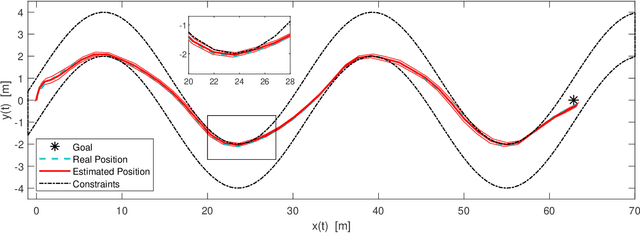



Abstract:Control of nonlinear uncertain systems is a common challenge in the robotics field. Nonlinear latent force models, which incorporate latent uncertainty characterized as Gaussian processes, carry the promise of representing such systems effectively, and we focus on the control design for them in this work. To enable the design, we adopt the state-space representation of a Gaussian process to recast the nonlinear latent force model and thus build the ability to predict the future state and uncertainty concurrently. Using this feature, a stochastic model predictive control problem is formulated. To derive a computational algorithm for the problem, we use the scenario-based approach to formulate a deterministic approximation of the stochastic optimization. We evaluate the resultant scenario-based model predictive control approach through a simulation study based on motion planning of an autonomous vehicle, which shows much effectiveness. The proposed approach can find prospective use in various other robotics applications.
Sampling-Based Nonlinear MPC of Neural Network Dynamics with Application to Autonomous Vehicle Motion Planning
May 09, 2022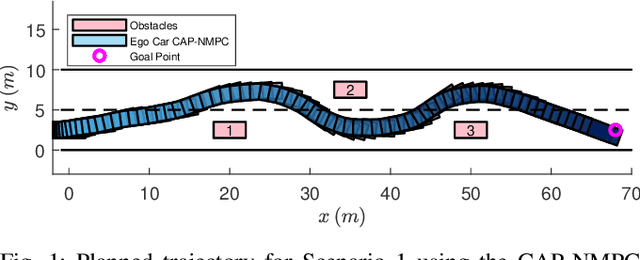
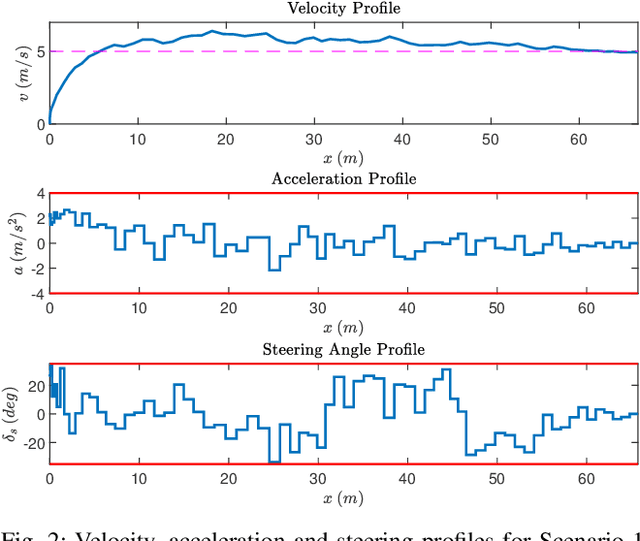
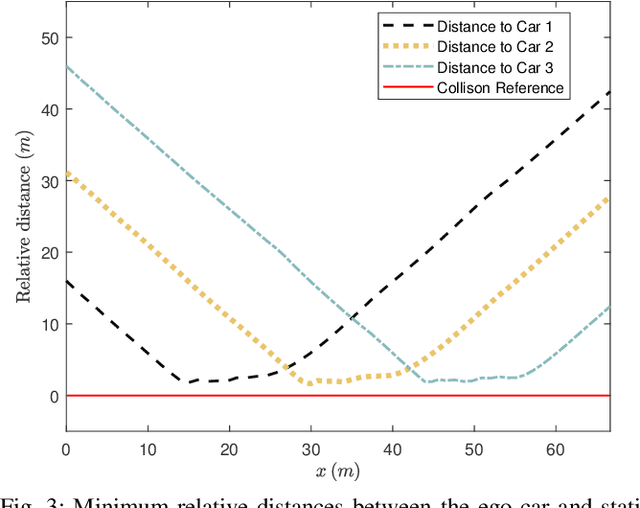
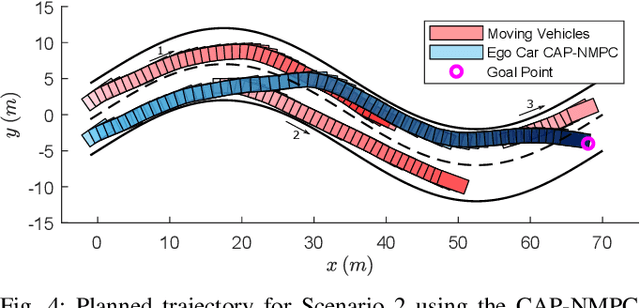
Abstract:Control of machine learning models has emerged as an important paradigm for a broad range of robotics applications. In this paper, we present a sampling-based nonlinear model predictive control (NMPC) approach for control of neural network dynamics. We show its design in two parts: 1) formulating conventional optimization-based NMPC as a Bayesian state estimation problem, and 2) using particle filtering/smoothing to achieve the estimation. Through a principled sampling-based implementation, this approach can potentially make effective searches in the control action space for optimal control and also facilitate computation toward overcoming the challenges caused by neural network dynamics. We apply the proposed NMPC approach to motion planning for autonomous vehicles. The specific problem considers nonlinear unknown vehicle dynamics modeled as neural networks as well as dynamic on-road driving scenarios. The approach shows significant effectiveness in successful motion planning in case studies.
 Add to Chrome
Add to Chrome Add to Firefox
Add to Firefox Add to Edge
Add to Edge